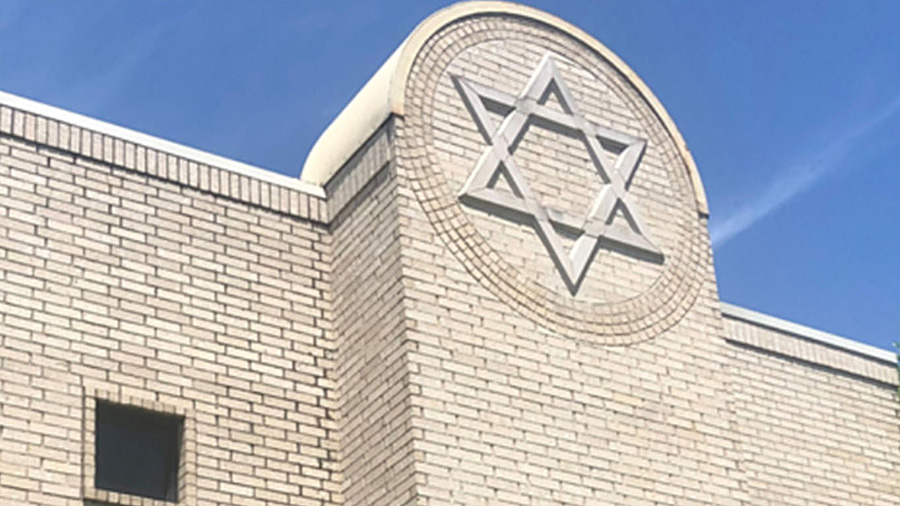President Biden was absolutely clear in his comments following the hostage-taking incident at the Beth Israel synagogue in Colleyville, TX last weekend. “We will stand against anti-Semitism and against the rise of extremism in this country,” he said. “That is who we are, and tonight, the men and women of law enforcement made us all proud.”
Perhaps more forcefully, Vice President Kamala Harris insisted that “what happened yesterday at Congregation Beth Israel is a reminder that we must speak up and combat antisemitism and hate wherever it exists.”
These were powerful statements about how Americans cannot, and will not tolerate violent acts of hate, and they were echoed throughout the mediasphere. It was gratifying to watch commentators, politicians, and community leaders, from James McAuley in the Washington Post, to Republican House Minority Leader Kevin McCarthy denounce antisemitism and condemn an act of terrorism within America’s borders. To be a Jew in America today is to live with the raw, recent memories of Pittsburgh, Poway, and Jersey City, to constantly feel a buzzing undertone of an impending threat of violence.
The violence might erupt at any moment, in the next town, on the next block, or when we go to shul, and it is a good feeling to know that our Gentile neighbors (or at least many of them) have our backs. The congressional delegation from my state of Massachusetts said so explicitly on Thursday, declaring that they “stand in solidarity with the Jewish community,” and condemning “the rising tide of antisemitism.” It is reassuring to hear such declarations of support, but unfortunately, they miss the point.
The problem with antisemitism is that it is not only manifested in acts of explicit hate and violence, but even more in the cultural context that makes such acts possible and, increasingly, it seems, inevitable. By the “rising tide of antisemitism,” our well-meaning allies – and I have no doubt of their intentions – really mean the increasing number of explicit antisemitic incidents over the last few years, not the persistence of the ideas that have motivated them. The violence in Colleyville and elsewhere is merely the expression of deeply-held, mostly uninterrogated ideas about Jews that are pervasive in Euro-American culture.
The Colleyville terrorist took Congregation Beth Israel hostage in an effort to secure the release of Aafia Siddiqi; he demanded to speak to a rabbi in New York, believing that all shuls are merely the public face of a vast Jewish conspiracy tapped into global power. “This was somebody who literally thought that Jews control the world,” Congregation Beth Israel’s Rabbi Charlie Cytron-Walker said in an interview with The Forward. “He thought he could come into a synagogue, and we could get on the phone with the ‘Chief Rabbi of America’ and he would get what he needed.”
As Yair Rosenberg observed in The Atlantic, the attack was predicated on a conspiracy theory with deep roots in our culture and a career reaching back centuries. It is the same canard that Rep. Marjorie Taylor Greene referenced in her “Jewish Space Lasers” libel last year, and that the agit-prop artist Mear One deployed in a mural praised by former British Labour leader Jeremy Corbyn four years ago. It is this kind of thinking that lies at the foundation of all the antisemitic violence of the last few years.
It would be bad enough if that were all of it. An idea so utterly irrational as the “international Jewish conspiracy,” is immune to rational intervention. According to the theory, Jews are simultaneously a wily cabal that controls the levers of international commerce, the leaders of an international Bolshevism that seeks to impose a godless-Communist word order, and pious fanatics motivated by the religious belief that we are “God’s Chosen People,” There is no way to engage sensibly with someone who believes, for example, that George Soros is a billionaire capitalist puppet-master using Joe Biden’s Democratic Party to impose Communism on Americans… And that he was once a Nazi collaborator. One would not even know where to start.
Far worse, in fact, is what makes such thinking even possible. What we need to acknowledge, and what Rosenberg only hints at when he writes that “although many people say they are against anti-Semitism today, they don’t understand the nature of what they oppose,” is that it is all baked-in to our culture.
Euro-American culture is the heir of what, until the last century, was habitually called “Christendom” without the slightest trace of irony. Its dominant ideas, down to the temporal rhythms of its weeks and years, grew out of a millennia-old genealogy that regarded the Jews as the persistent internal other, an obdurate and stiff-necked people who denied the Truth, always kept to themselves, maintained a network of transnational connections with their coreligionists, and who killed the Son of God by turning him over to Pontius Pilate so the Roman state could do their dirty work.
Even if few Gentiles are today as committed to Christian orthodoxy as they once were, and have consciously repudiated the “truth” of the Church for other truths, both new and old, there remains something “shifty” about the Jews in their unconscious imagination. It doesn’t matter that the Colleyville terrorist was not a Christian; he was born and raised in Blackburn, Lancashire, in the heart of old Christendom. The British, after all, bequeathed Shylock, Fagin, and the Annas and Caiaphas of Jesus Christ Superstar to world culture.
The weeds of Antisemitism are planted deep in our culture, and it they will not be uprooted by expressions of outrage at acts of antisemitic violence, no matter how heartfelt and well-meaning. The deed follows the idea, and the idea springs from dark, repressed thoughts deep in our cultural unconscious. Until we are willing to dig up those thoughts and expose them to the light and confront them, the violence will go on.

